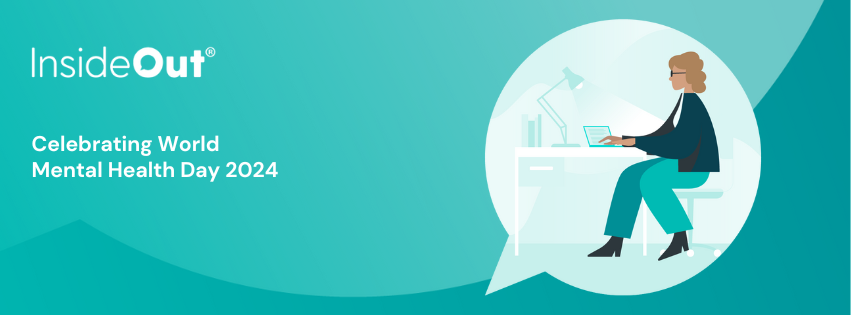There is a great temptation to play it safe and stay in the professional comfort zone. Given the choice between feeling secure because you have a good idea of what your day will bring, and feeling nervous because you are planning to do something challenging that makes you feel unsafe, which option would you choose?
Z was stuck in her comfort zone
Z is a coaching client of mine who came to see me a while ago because she had had enough of doing jobs that kept her in her comfort zone. She is a smart and educated woman who tends to gravitate towards administrative roles that don’t stretch her.
Every time she starts a new role, she grows bored quickly. She has jumped from one similar role to the next, always feeling undervalued and never demonstrating her full potential to her managers.
Comfortable… but bored
While some people thrive on the adrenalin rush of going beyond their comfort zone, others, like Z, have never ventured beyond what feels comfortable. The mere thought brings them out in a cold sweat.
Although Z knows that venturing beyond her comfort zone will be challenging, she is sick of feeling unfulfilled and stymied by her tendency to stand still. She feels trapped in a cycle of her own making and is ready to explore what it feels like to grow through feeling some discomfort for a change.
Z’s decision to see a Career Transition Coach demonstrates her intention to find a new career opportunity that will both challenge and help her feel a sense of achievement after so many years of feeling professionally unsatisfied. #FaceYourFears #ColdSweat
Staying in your comfort zone may be cosy but it can also be a bit boring. To quote Z:
I’m pleased I plucked up the courage to work with a coach. I feel a sense of freedom after realising that being safe in a job doesn’t make me happy. I am now excited at the prospect of trying new things.
Reframe your thinking
We began our work together by reframing Z’s thinking to help her recognize that she deserves to create something new for herself. Using techniques to help Z overcome her negative thought patterns, we worked together to boost her confidence and build resilience.
Her mindset is now more positive and open to change. She is less afraid of taking risks and more inclined towards self-compassion. Z now acknowledges that she is capable of finding a job that stretches her, excites her, puts her skillset to better use, and brings her fulfilment.
Taking steps outside of your Professional Comfort Zone
Below are 5 areas Z and I have explored to help her find the courage to feel more at ease with going outside of her comfort zone. These are useful tips for anyone who is considering experimenting with feeling uncomfortable when pushing personal boundaries.
1. Anticipation is usually worse than the real event
We are our own worst enemies. Often, our anxiety gets the better of us and our nerves start to manifest in the form of sweating, palpitations, breathlessness, and a sense of panic. If you find yourself in an anxious state when facing a challenge, here are a few strategies you can develop to reduce your anxiety:
-
Take control of your self-talk and retrain your thinking. Tell your inner critic that you are well prepared, you are ready to take on this challenge, and you will feel amazing when it is done. #InnerCriticPractise
-
Practise breathing deeply to ground yourself. Find somewhere quiet. Take a deep breath in through your nose, hold it for 4 seconds and then breath out through your mouth for 4 seconds. Keep doing this until you start to feel calmer. #StayCalm
-
Do a 5-minute meditation prior to undertaking your challenge. There are many apps available to help you become calm, such as Calm, HeadSpace, Mindful.
-
Watch Amy Cuddy’s Ted Talk, ‘Your body language may shape who you are’ (YouTube: TEDGlobal, 2012). In this video, Cuddy encourages us to look in the mirror and assume a power pose, like a super-hero. This can help us step into our power and feel stronger and more equipped to take on our challenge. Cuddy believes that power posing helps us change how we see ourselves and builds confidence, helping us achieve successful outcomes.
2. Admit that you are nervous
Generally, when we admit to feeling a certain way to the people around us, we are perceived to be strong and emotionally intelligent. Hiding how we really feel inside can lead to self-judgement and cause us to hold ourselves back.
Admitting to feeling fear shows vulnerability. Being vulnerable shows strength and courage. Next time you are feeling vulnerable, try sharing this with the people around you and see what effect this has. It is likely to make you feel stronger and will help you feel connected to the people around you. #EmotionalIntelligence
3. Stop worrying about what people think of you
Have you ever stopped to think about who are all these people that are thinking about you and judging you? In fact, it is unlikely that people are thinking negative thoughts about you. There is a stronger likelihood that your inner critic is taking control, causing you to judge yourself harshly. All of us has an inner critic running a commentary on our lives. We rarely judge others as harshly as we judge ourselves. #SelfJudgement #InnerCritic
Try to become more aware of your self-critical, negative thoughts, and challenge them. Recognise that there is no evidence to show that people are judging you. Taking control of your inner critic and overruling it can lead to successful outcomes.
4. Recognise that you are growing
Often, when we are feeling fearful, it is important to recognize that we are growing. The process of pushing ourselves outside of our comfort zone is often not an easy road to navigate. Experiencing difficulty can be painful but it can also contribute to our personal growth, and ultimately make us feel better about ourselves.
Growth through pain builds resilience and self-confidence, making us more determined to dig deep to see how far outside of our comfort zone we are able to venture. #Resilience #SelfConfidence
5. Congratulate yourself for your accomplishments
It is important to acknowledge yourself for your achievements. Take time to pat yourself on the back for a job well done and think about how your accomplishments have made you feel. Continue on your voyage of self-discovery and see what it feels like to push yourself to a place you have never been to before.
Escape to new horizons
Z and I continue to work together to expand her horizons. She is making huge strides in appreciating that she is capable and adept in areas that she might never have dreamt she would explore.
As she grows in self-confidence and resilience, she is looking into working in industries and seeking roles that she would never have had the courage to apply for previously. She is determined to dig deep to see how far outside of her comfort zone she is prepared to venture to find a brand new career opportunity for herself.
She is prepared to experience difficulty as she explores the path to a new role knowing that it will contribute to her personal growth, and ultimately make her feel better about herself. #NewOpportunities
Like Z, as you work through the above tips to help you push your personal boundaries, you will grow in self-confidence. You’ll start to feel increasingly inspired to pursue the new and exciting opportunities that exist outside of the professional comfort zone. #TryNewThings. This article was first published on TheCoachSpace.com
Author: Alisa Salamon, Life Coach at InsideOut








